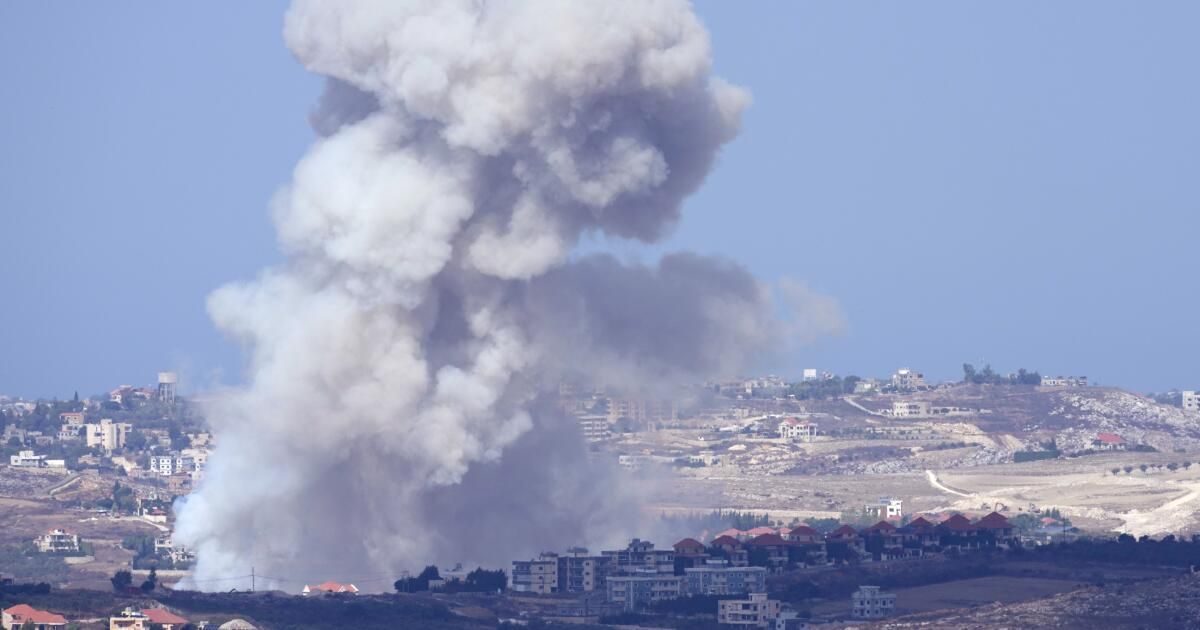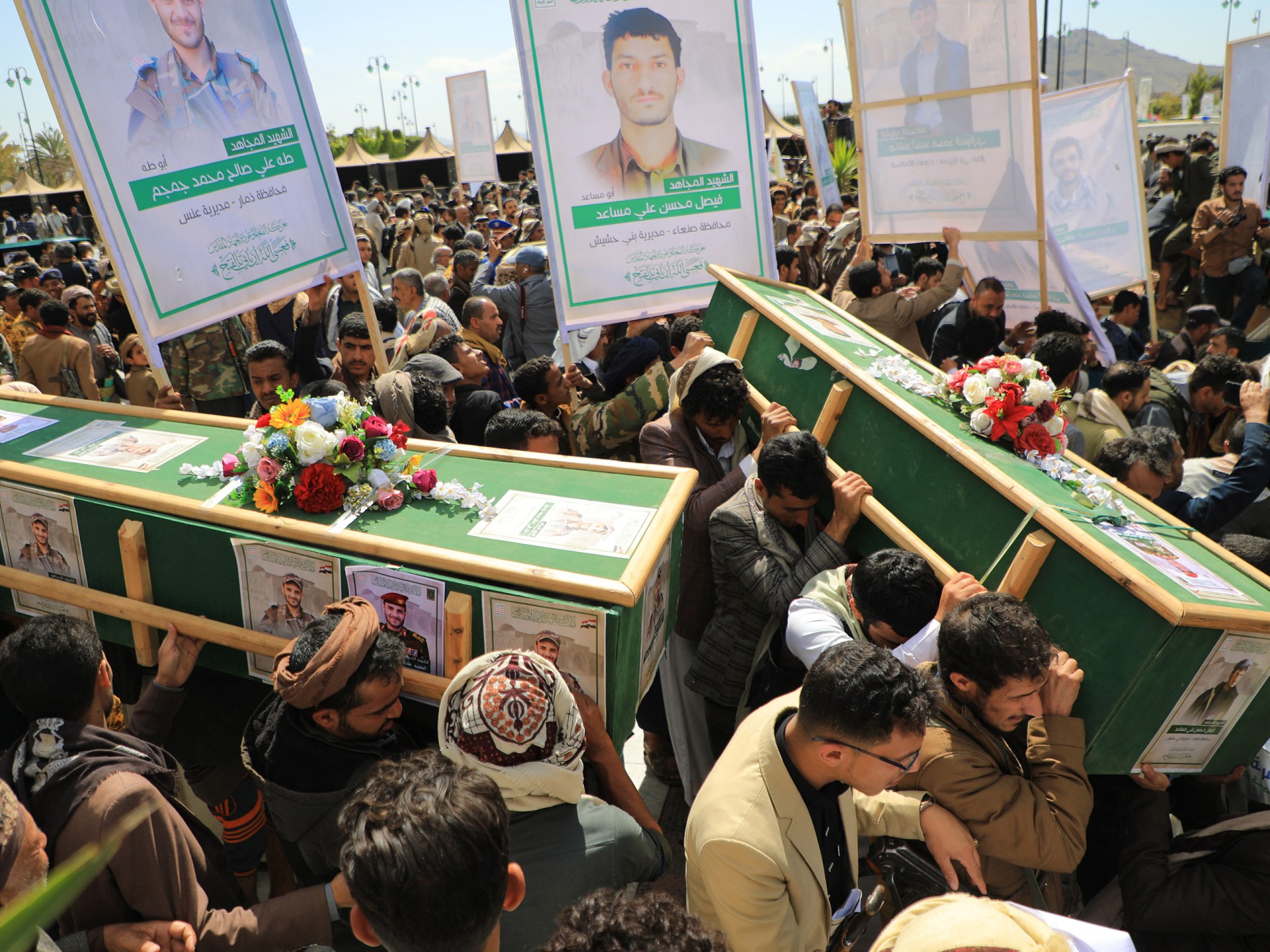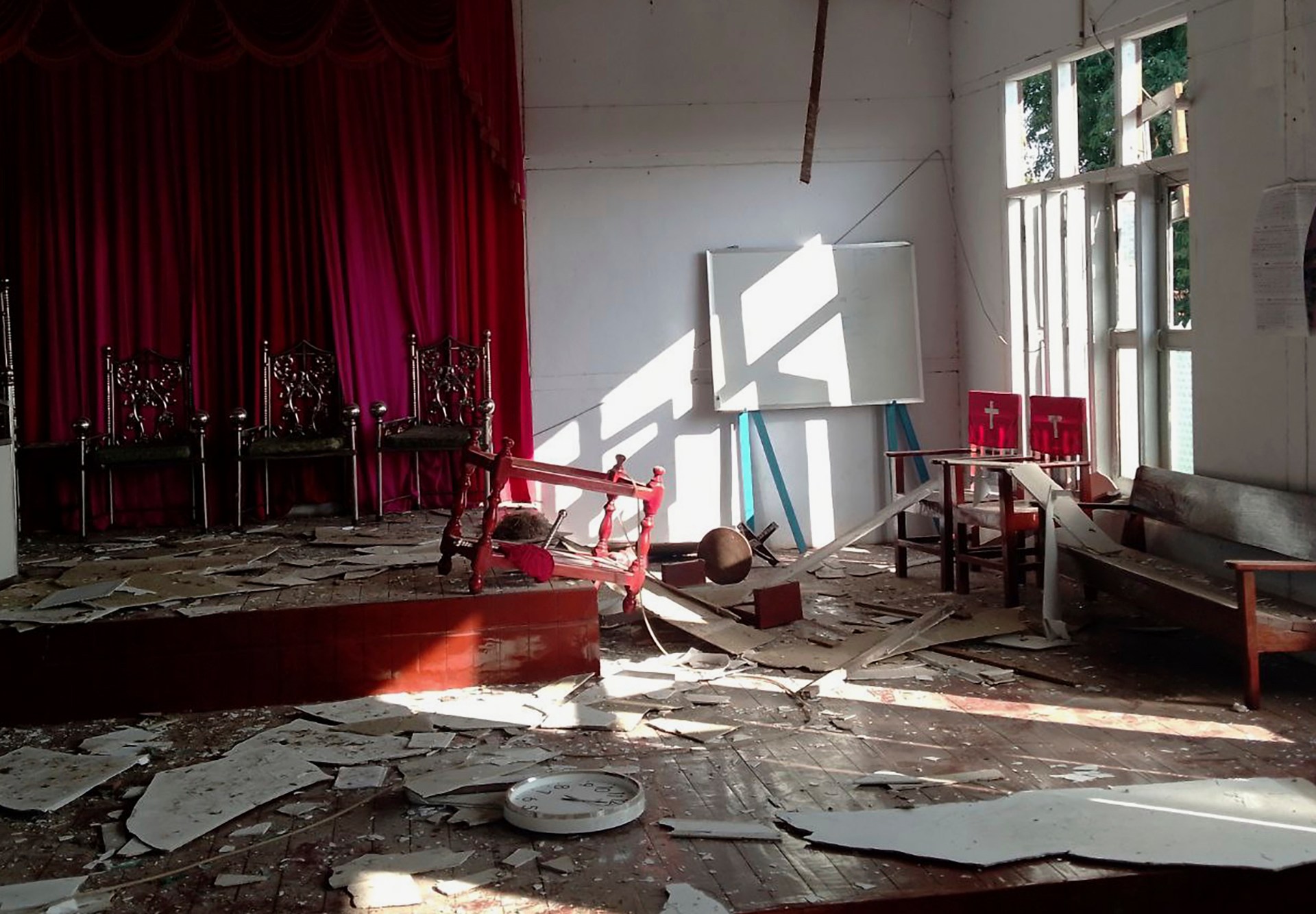Amid the threat of a wider war in the Middle East, Israeli warplanes bombed cities and towns in Lebanon on Monday, carrying out airstrikes against what the Israeli military said were more than 800 Hezbollah targets.
More than 274 people were killed in the attacks, including 39 women, 21 children and two ambulance workers, Lebanese Health Minister Firas Abiad told a news conference. Another 1,024 people were wounded, he added.
In response, Hezbollah fired dozens of rockets at Israel, some of which reached Haifa. Hezbollah claimed it was targeting military bases and a weapons manufacturing company.
Monday's attack marked a sharp escalation in fighting between Israel and Hezbollah, and the deadliest day for the Lebanese since the 2006 war, when Hezbollah and Israel last clashed in a major conflict.
The announcement comes as Israeli leaders announce a “new stage” in their fight against Hezbollah, the Iranian-backed Lebanese Shiite paramilitary faction and political party. Israel says its goal is to push Hezbollah forces back from the border to allow Israeli residents to return to the north of the country.
The Biden administration has for months been urging Israel, Hezbollah and others to avoid a broader conflict in the region, where fighting between Israel and Hamas has already convulsed the southern Gaza Strip. War with Hezbollah could be even more devastating because the militant group is far better armed than Hamas.
Before the Israeli strikes, residents across Lebanon reported receiving landline phone calls and SMS messages with warnings from the Israeli military to stay away from buildings or areas where Hezbollah was hiding or deploying weapons. Those who received phone calls in Beirut said they heard a pre-recorded message with someone speaking with an Egyptian accent. Ogero, the country’s state-run landline operator, said its systems detected some 80,000 attempted calls suspected to be Israeli.
Others reported the same message broadcast on Lebanese radio.
One of the recipients of a telephone warning was the office of Lebanese Information Minister Ziad Makari, who dismissed the warnings as part of Israel's “psychological warfare.”
The Lebanese Health Ministry suspended all non-urgent surgeries to make room for treatment of the wounded. Abbas Halabi, Lebanon’s interim education minister, ordered all schools closed on Monday and Tuesday in southern Lebanon, the Bekaa Valley and Beirut’s southern suburbs, where Hezbollah has a dominant presence. Lebanese Health Minister Firas Abiad later issued a statement ordering all kindergartens in Lebanon to close on Tuesday.
Meanwhile, an exodus from the south of the country began, with motorists reporting huge traffic jams on the main coastal highway leading to Beirut. Social media was filled with people trying to find or rent accommodation in northern Lebanon.
In a video address on Monday, Israeli Prime Minister Benjamin Netanyahu vowed to press ahead unless Hezbollah backs down.
“I want to clarify Israel’s policy for those who do not yet understand it: We do not wait for the threat, we are preventing it, everywhere, in all sectors, constantly,” he said. “We are eliminating the top brass, the terrorists and the missiles, and our arm remains extended. Whoever tries to harm us, we will do so with greater force.”
U.S. Defense Secretary Lloyd J. Austin III met with his Israeli counterpart on Sunday night for the second time in less than a week to offer support for Israel's defense but also to urge a diplomatic solution to the conflict.
“The Secretary expressed support for Israel’s right to defend itself as Hezbollah extends its attacks deeper into Israel, and stressed the importance of finding a path to a diplomatic solution that allows residents on both sides of the border to return to their homes as quickly and safely as possible,” Pentagon spokesman Maj. Gen. Pat Ryder said in a statement Monday.
The air campaign comes after a week of suffering for Hezbollah. On Tuesday and Wednesday, the group suffered a double wave of attacks that saw thousands of pagers and walkie-talkies explode, leaving 39 people dead and thousands of Hezbollah fighters, officials and administrators maimed and incapacitated.
The attacks were widely attributed to Israel, which did not claim responsibility.
On Friday, an Israeli airstrike hit a residential compound in Beirut's southern suburbs, killing a senior Hezbollah commander and 15 of its special forces leaders, as well as more than twice that number of civilians. Nine people remain missing, according to Lebanon's civil defense.
Israel is betting that the escalation will force Hezbollah to suspend its rocket-firing campaign, which the group launched on Oct. 8, a day after Hamas's attack on southern Israel and the fierce Israeli bombardment of Gaza that followed. Hezbollah said it attacked Israel in solidarity with Palestinians in Gaza.
Since then, Israel and Hezbollah have exchanged fire almost daily on the Lebanese-Israeli border. The fighting has displaced some 110,000 people in Lebanon and some 60,000 in northern Israel, leaving both sides of the border depopulated.
Israel accuses Hezbollah of installing rocket launchers and other weapons inside homes and residential neighborhoods in southern Lebanon.
“As a result,” said IDF spokesman Daniel Hagari, Hezbollah “has turned southern Lebanon into a battlefield.”
Shortly before 3 p.m. local time, Israeli military Arabic spokesman Avichay Adraee posted a message on X informing residents of the Bekaa Valley in southern Lebanon who live “in or near a house containing Hezbollah weaponry” that they had two hours to move 1,000 meters outside their village or head to a “central school near you,” and not return until further notice.
Hezbollah officials say they have no intention of stopping until a ceasefire is reached in Gaza. On Sunday, deputy leader Naim Qassem said the group was now in a “never-ending score-settling battle” with Israel and that the group was ready for “all military possibilities.”
“The support front will continue no matter how much time passes until the war in Gaza ends,” Qassem said.
Times staff writer Tracy Wilkinson contributed from Washington.












